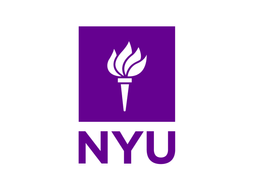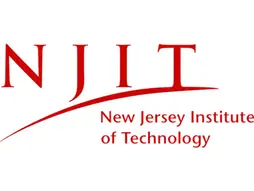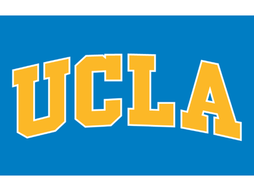DEEP Summer Academy at UofT: A Comprehensive Guide
Our blog post today covers a STEM program for high schoolers keen on strengthening their college applications. Participation in such programs is a great way to demonstrate your interest in STEM, willingness to go above and beyond the regular curriculum, and potential to succeed in a rigorous academic environment.
Today, we cover the DEEP Summer Academy at the University of Toronto (UofT) and how the learning opportunities it offers could potentially provide a competitive edge in your college admissions journey.
What is DEEP Summer Academy?
The Da Vinci Engineering Enrichment Program or DEEP Summer Academy is a pre-university program offered by the University of Toronto's Faculty of Applied Science & Engineering. It's designed for high-achieving high school students with a strong interest in science and mathematics. The program offers a wide range of courses in various disciplines, including engineering, technology, business, and science. Taught by UofT's alumni, PhD candidates, and Master's and undergraduate students, DEEP Summer Academy exposes you to advanced concepts typically encountered in upper-year undergraduate or even graduate studies.
How is DEEP Summer Academy structured?
DEEP Summer Academy takes place across one of four sessions, depending on the course choice. Dates for 2025 have not been announced yet, but the 2024 program had the following sessions:
Session A: July 8 – 12, 2024
Session B: July 15 – 19, 2024
Session C: July 22 – 26, 2024
Session D: July 29 – August 2, 2024
The program consists of a series of courses taught by research associates. There are different sets of courses on offer, depending on which grade you’re in, and each is available in a different session. While you can choose multiple courses, you may only attend one per week of the program.
Courses for 2025 have not been announced yet. Take a look at the 2024 course listings below for a sample:
Grade 9/10 Offerings
UX Design: An offering focused on demystifying app design, with insights on everything from psychology to the design and technology that go into effective UX design.
Health Monitoring in Biomedical Engineering: This course helps you explore the science behind wearable tech, and the sensors, data processing capabilities, and machine learning that makes them work.
Cryptography and Cybersecurity: This course teaches you the fundamentals of cryptography and gives you the opportunity to create your own blockchain.
Insights in Data Science: If you want to get a deep-dive into neural networks while honing your data analysis skills by working on real-world datasets, this is the course for you.
Grade 11/12 Offerings
Algorithms and Automation: You will learn how to program a robot with integrated sensors and understand basic linear algebra, image recognition softwares and advances, and the engineering design cycle.
Civil Engineering: This is the course to pick if you want a comprehensive introduction to the principles of construction, structural design, and construction management.
Roboticist’s Interdisciplinary Perspective on Neuroscience: This unique offering explores the intersection of neuroscience with robotics and artificial intelligence.
Sustainable Plastics and Beyond: An opportunity to get into the realm of polymer processing while enhancing your lab skills and working alongside graduate researchers taking on the current challenges in research.
The classes for each session are scheduled from Monday to Friday, 9:30 a.m. to 3:30 p.m.
Is it prestigious?
DEEP Summer Academy has fairly rigorous academic standards, requiring your transcript and a 500-word statement for application. The program attracts students from around the world, making it more competitive than domestic-only programs. The program maintains a waitlist, so not everyone who applies will get in. However, the program is paid, and unlike some other pre-college summer programs, you will not be taught by university faculty. Courses are taught by the university’s alumni, PhD students, and graduate and undergraduate researchers. Overall, we would rate the program as moderately prestigious, an opportunity worth considering if you want exposure to graduate-level research courses while still in high school.
Who is eligible for DEEP?
To be eligible for the DEEP Summer Academy, you must:
Be currently enrolled in a high school program (grade 9-12)
Have completed at least one year of high school
Demonstrate strong academic performance in science and mathematics
How does the application process work?
The application process for DEEP Summer Academy involves submitting the following:
Completed application form
Your report card or official transcripts. The results of a recent science course and a recent math course from the past two years must be provided.
A 500-word statement answering the following questions:
Why do you want to attend DEEP? What do you hope to get out of this experience?
How will learning about cutting-edge graduate-level research help you reach your goals?
Applications are typically assessed in two successive rounds, and if you apply early you can be considered for all of them, improving your chances of selection. Dates for 2025 have not been announced yet but will probably be similar to the 2024 dates:
Round 1: February 22 – March 7, 2024
Round 2: March 8 – March 28, 2024
How much does DEEP Summer Academy Cost?
The application fee is $50 in round 1 and $60 in round 2. The cost of the program is $675 per week for domestic students, and $1000 per week for international students. Bursaries are available for Canadian citizens, permanent residents, and protected individuals with financial need. See more details here.
Residence costs an additional $1,700 per week, details of which can be found here.
Pros and Cons of attending
Pros:
Gain exposure to advanced STEM concepts: DEEP Summer Academy offers a unique opportunity to learn about cutting-edge research and technology at the upper-undergraduate or even graduate level.
Learn from experienced mentors: The program is taught by experienced faculty members and research associates who are experts in their field.
Enhance your college application: Participating in DEEP Summer Academy can strengthen your college application by demonstrating your academic achievements and exposure to real STEM research and projects.
Cons:
Competitive application process: DEEP Summer Academy is a fairly competitive program, and acceptance is not guaranteed.
Short duration: The program is rather short with one-week courses and therefore limits how much learning you’ll be able to extract from it.
Limited financial aid available: While the program is not one of the more expensive ones we’ve covered, the lack of financial aid for non-Canadians may be a challenge for applicants.
Our Review
Overall, DEEP Summer Academy is a good opportunity for high-achieving high school students who are serious about STEM to deepen their academic knowledge and gain valuable early exposure to graduate and undergraduate level research. The program offers a rewarding experience that can help you pursue future research opportunities in high school and college.
One other option - Lumiere Research Scholar Program
If you’re interested in pursuing independent research in STEM, you could also consider applying to one of the Lumiere Research Scholar Programs, selective online high school programs for students founded with researchers at Harvard and Oxford. Last year, we had over 4000 students apply for 500 spots in the program! You can find the application form here.
Also check out the Lumiere Research Inclusion Foundation, a non-profit research program for talented, low-income students. Last year, we had 150 students on full need-based financial aid!
Stephen is one of the founders of Lumiere and a Harvard College graduate. He founded Lumiere as a PhD student at Harvard Business School. Lumiere is a selective research program where students work 1-1 with a research mentor to develop an independent research paper.











